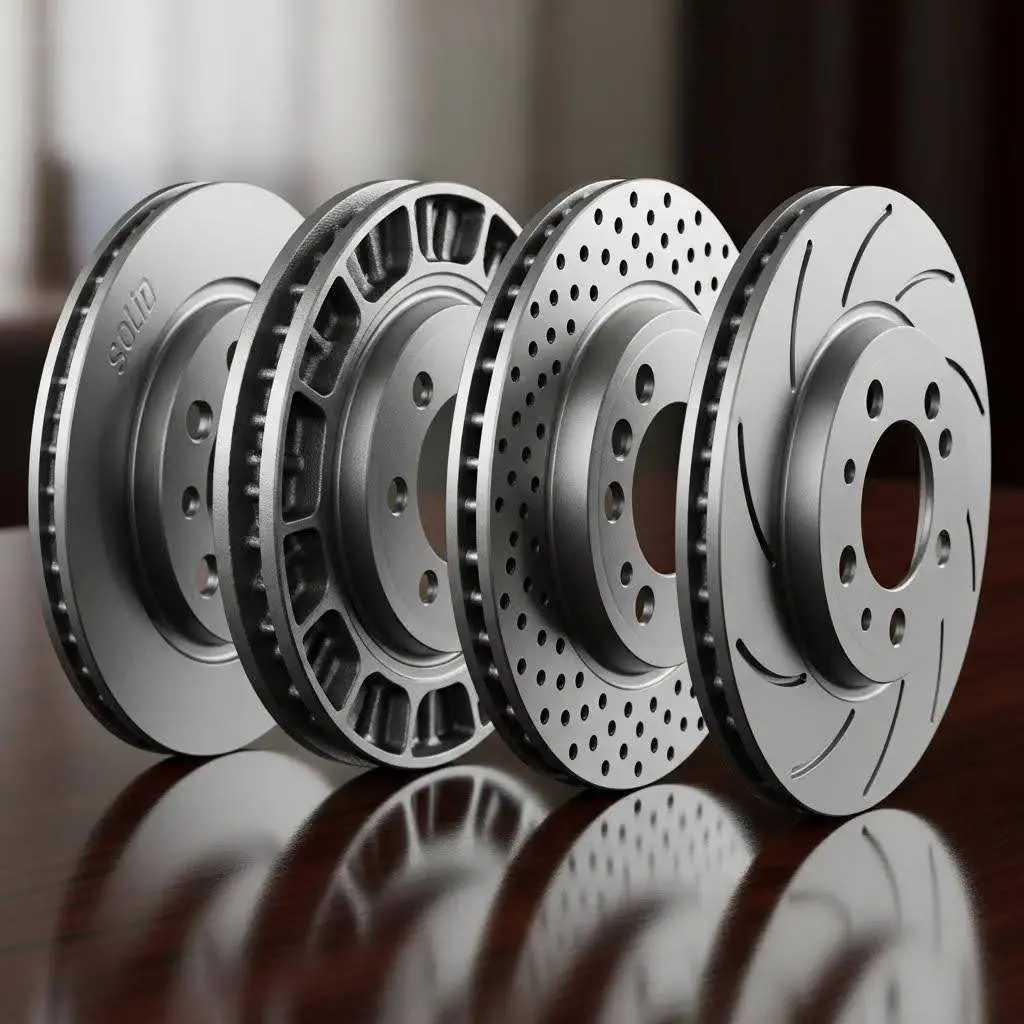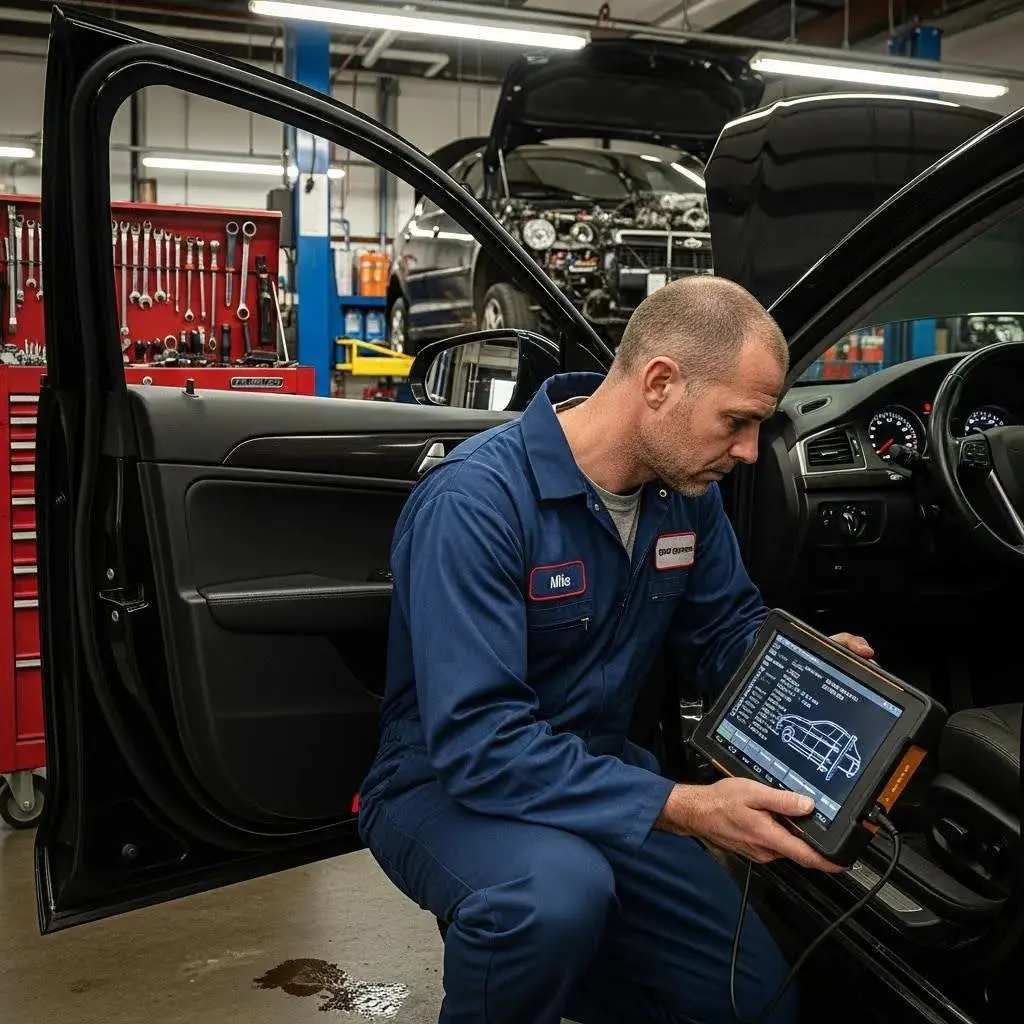Choosing the right tyres for your car can significantly impact your driving experience, safety, and overall vehicle performance. With so many types, sizes, and brands available in the market, it can be overwhelming to decide which ones to choose. Whether you’re a seasoned driver or a new car owner, this guide will provide you with everything you need to know to choose the best tyres. From understanding the different types of tyres to evaluating your driving needs and budget, we’ve got you covered. So let’s dive in and explore how to choose new tyres for your car.
Have you ever had a Blowout and Wished There was an Easier way to Choose Tyres for your Car?
At All Vehicle Services, we know the importance of having quality tyres on your vehicle. We’ve compiled this guide to help you select the right set of tyres for your car! Our tyre experts will walk you through everything from size & fitment to tread type, speed ratings, load capacity – and more!
By following our advice and guidance, choosing new tyres for your car won’t be a daunting task anymore. You can save time by getting exactly what you need without losing your budget. Get quality service with fast turnaround times from our professional mechanics!
Why Choosing the Right Tyres is Important for Your Vehicle
Choosing the right tyres for your vehicle is crucial because it can affect your driving experience, your safety, and your vehicle’s overall performance. Here are a few reasons why choosing the right tyres is essential:
Safety
Tyres are the only part of your vehicle that comes into contact with the road, so they play a critical role in keeping you safe. The right tyres can provide better traction and handling, which can help you avoid accidents on wet or slippery roads.
Fuel efficiency
Tyres that are worn or unsuitable for your vehicle can cause your fuel consumption to increase, resulting in higher fuel costs. Choosing the right tyres that are designed for your vehicle can help you achieve better fuel efficiency.
Comfort
The right tyres can provide a smoother ride, reducing noise and vibrations. This can enhance your driving experience and make long journeys more comfortable.
Longevity
Tyres that are not suitable for your vehicle can wear out faster, meaning you may need to replace them more frequently.
Choosing the right tyres can extend the lifespan of your vehicle’s tyres and save you money in the long run.
When to Replace Your Tyres: Signs to Look Out For
Several signs indicate that it’s time to replace your tyres, regardless of the type of vehicle you own. Here are some signs to look out for: If you notice bulges, cracks, or uneven wear on your tyres, it’s essential to consider getting new ones. Additionally, if your tread depth is below the recommended level, this could compromise your safety on the road. This leads to the question of how frequently should you change tyres to ensure optimal performance and safety.
Tread Depth

The tread depth is one of the most important factors when determining whether to replace your tyres. The legal requirement for tyre tread depth in the UK is 1.6mm throughout the central three-quarters of the tyre. The tread depth should never fall below 1.6mm.
Cracks

Inspect your tyres for sidewall cracks, as this can indicate aging. Additionally, if you see cracks running along the tread blocks or the tyre shoulder, it’s time to replace your tyres.
Bulges or Bubbles

If you notice any bulges or bubbles on the tyre’s sidewall, it could damage its internal structure. This can cause the tyre to fail catastrophically, so it’s important to replace it immediately.
Age

Tyres have an average lifespan of around 5-7 years, regardless of how much tread is left on them. If your tyres are approaching this age, it’s time to replace them, even if they look like they still have plenty of treads left.
These are just a few of the signs that indicate it’s time to replace your tyres.
Understanding Tyre Size and Type
When choosing tyres, it is important to ensure they are the right size and type for your vehicle. All Vehicle Services in Sittingbourne can help you select the best tyre size and type for your needs.

When selecting tyres, it’s important to consider the type and size. Different types of tyres have different characteristics and are designed for different applications. A series of numbers and letters on the sidewall indicates tyre size. For example, P 225/70 R16 91S indicates the following:
- P: The tyre’s class which in this case indicates that the tyre is used for passenger vehicles.
- 225: The tyre’s width of the tyre in millimetres.
- 70: The aspect ratio or the height of the tyre’s sidewall as a percentage of its width.
- R: The type of tyre, in this case, a radial tyre.
- 16: The diameter of the wheel rim in inches.
- 91: The load index or the maximum weight the tyre can carry.
- S: The speed rating or the maximum speed the tyre can handle.
These are just a few key points to consider when selecting the right size and type of tyres for your vehicle.
Tyre Tread Patterns and Their Importance

When choosing tyres, you should also consider the tread pattern. The tread pattern affects a tyre’s performance in different conditions and can help ensure better traction and handling. There are several types of tyre tread patterns, including:
Directional Tread Pattern
This pattern features V-shaped grooves that point in one direction, which helps to displace water and provide better traction on wet roads.
Symmetrical Tread Pattern
This pattern features identical tread blocks on both sides of the tyre, balancing traction and handling on wet and dry roads. They offer smooth driving and low rolling resistance.
Asymmetrical Tread Pattern
This pattern features different tread blocks on the inside and outside of the tyre, providing a balance of handling, great curve stability and traction on wet and dry roads.
The tread pattern is an essential aspect of tyre design and plays a significant role in the performance, safety, and comfort of a vehicle.
Tyre Load Index and Speed Rating?

Tyre Load Index and Speed Rating are two important specifications that indicate the maximum load capacity and speed capability of a tyre.
The Load Index
It is a numerical code that indicates the maximum weight that a tyre can carry when it’s inflated to its recommended pressure. The Load Index can be found on the tyre’s sidewall and typically corresponds to a specific weight capacity. For example, a Load Index of 91 indicates that the tyre can carry a maximum load of 615 kg. It’s important to choose a tyre with a Load Index that meets or exceeds the weight of your vehicle and any additional cargo you may be carrying.
The Speed Rating
On the other hand, it is a letter code that indicates the maximum speed that a tyre can sustain when it’s properly inflated and loaded to its recommended weight capacity. The speed rating can also be found on the tyre’s sidewall and typically ranges from L to Y, with each letter corresponding to a specific speed rating. For example, a speed rating of V indicates that the tyre can sustain a maximum speed of 240 km/h. It’s important to choose a tyre with a speed rating that meets or exceeds the maximum speed of your vehicle.
Choosing a tyre with a load index and speed rating suitable for the vehicle and driving conditions is important. Overloading or exceeding the speed rating of a tyre can lead to premature wear, tre failure, and potentially dangerous driving conditions.
Seasonal Tyres: Summer, Winter, and All-Season Tyres
If you are a resident of Sittingbourne, you may want to consider seasonal tyres. Depending on the weather conditions in your area, winter tyres, summer tyres, or all-season tyres are great options.

Summer Tyres
These tyres are designed to provide excellent grip and handling on dry roads. They have a tread pattern optimised for warm weather and are unsuitable for use in snow or icy conditions.
Winter Tyres
Winter tyre is designed to provide better traction and wet grip in cold weather, including snow and ice. They have a special tread pattern and rubber compound that remains flexible in low temperatures.
All-season Tyres
These tyres are designed to provide a balance between summer and winter tyres. They can be used in various weather conditions, including light snow and rain.
Are All-Season Tyres the Best Choice for Your Car?
All-season tyres are a great option if you don’t want to change your tyres throughout the year like bridgestone tyres. They balance summer and winter tyres, allowing for good handling in wet and dry conditions and light snow and ice.
These are just a few seasonal tyres available at All Vehicle Services, including run-flat tyres. Choosing the right tyre size and type is crucial for ensuring the safety and performance of your vehicle. You can always consult your vehicle manual or a tyre professional to determine the appropriate size and type of tyre for your vehicle and driving needs. Proper maintenance and storage are key elements in extending the life of your tyres, and following tyre storage best practices for longevity can help achieve this. Ensure tyres are kept in a cool, dry environment away from direct sunlight and sources of ozone, such as electric motors. Regularly inspecting for signs of wear and ensuring they are properly inflated before storage will further enhance their durability.
Premium Tyre Brand vs. Budget Tyres
The debate of whether to buy premium tyres or budget tyres has been long-standing. At All Vehicle Services in Sittingbourne, we understand the importance of finding the right balance between cost and quality.
Premium Tyres:
These are usually more expensive than their budget counterparts but often come with greater high-performance tyres benefits that make them worth the extra money. For example, premium tyres tend to last longer and provide better handling on wet roads.
Budget Tyres:
These are usually cheaper than their premium counterparts but are not always as good in performance. They may wear out faster than higher-end tyres and generally don’t handle wet roads. However, budget tyres can be a great option for those on a tight budget who want to save money in the short term.
While budget tyres may be a more affordable option upfront, they often sacrifice quality, performance, longevity, and safety. Premium tyre brands, on the other hand, provide superior quality, performance, and safety, making them a worthwhile investment in the long run.
How to Extend the Life of Your New Car Tyres
When you invest in new car tyres in Sittingbourne, you want them to last as long as possible. Tyres are a critical component of your vehicle, as they are the only part of your car that makes contact with the road. Therefore, it is important to take good care of them to ensure that they provide optimal performance and safety. Here are some tips to help you extend the life of your new car tyres:
- Proper Tyre Pressure Monitoring System: One of the most important things you can do to extend the life of your car tyres is to ensure that they are inflated to the correct pressure. Over or under-inflated tyres can wear out quickly, and they can also negatively affect your car’s handling and fuel economy. Check your tyre pressures regularly and adjust it as needed.
- Rotate Your Tyres: Tyres wear out unevenly depending on their position in your car. By rotating your tyres regularly, you can ensure they wear out more evenly, extending their life. A general rule of thumb is to rotate your tyres every 5,000 to 8,000 miles.
- Avoid Overloading Your Car: Putting too much weight on your car can put extra strain on your tyres, causing them to wear out faster. Be mindful of the weight capacity of your vehicle and avoid overloading it with heavy items.
- Drive Responsibly: Your driving habits can also impact the lifespan of your tyres. Abrupt acceleration and braking, as well as hard cornering, can put extra stress on your tyres, causing them to wear out faster. Drive responsibly and avoid harsh driving manoeuvres.
- Regularly Inspect Your Tyres: Regularly check your tyres for signs of wear and damage. If you notice any bulges, cracks, or cuts on your tyres, have them inspected by a professional mechanic at All Vehicle Services, Sittingbourne. Also, check the tread depth regularly, as bald tyres can be dangerous and are more likely to suffer from blowouts.
By following these tips, you can extend the life of your new car tyres and ensure that they provide optimal performance and safety.
Where to Buy Tyres?
When buying quality tyres, there are a variety of options available, both online and in-store. However, if you’re looking for the best place to get high-quality tyres in Sittingbourne, UK, look no further than AVS – All Vehicle Services.
AVS is a trusted tyre retailer and tyre fitter that offers a wide range of tyres from all the major brands, including Michelin, Pirelli, Continental, Goodyear, Bridgestone, and more. Whether you need tyres for your car, van, SUV, or 4×4, AVS covers you. What sets us apart from other tyre retailers is our commitment to providing exceptional customer service.
Our team of experienced technicians will help you select the right tyres for your vehicle and driving style, ensuring that you get the best possible performance and safety on the road. In addition to selling tyres, we also offer tyre fitting services using the latest equipment and technology
Frequently Asked Questions
Q: How often should I replace my tyres?
A: Tyres should be replaced when the tread depth reaches 2mm or if there are signs of damage, such as cuts, punctures, or bulges. It is also recommended to replace tyres every 6 years, regardless of tread wear, due to the ageing of the rubber.
Q: Should I replace all four tyres at once?
A: It is recommended to replace all four tyres simultaneously to maintain consistent handling and performance. However, if you need to replace only one or two tyres, make sure they match the remaining tyres in size, type, and brand.
Q: What size of tyres do I need for my car?
A: You can find the correct size of tyres for your car in your car’s owner’s manual or on the tyre placard on the driver’s side door jamb, including OE tyres. The tyre size will be expressed in numbers and letters, such as P225/60R16. Ensuring your tyres are properly inflated is crucial for both safety and fuel efficiency. To do this, you should know how to check tyre pressure accurately with a reliable gauge. Regular checks can help prevent uneven wear and extend the lifespan of your tyres.
Conclusion
By choosing All Vehicle Services, you can rest assured that your vehicle is in good hands and that all your auto-related needs will be handled with utmost care and attention. car servicing tips for your vehicle are essential for maintaining its performance and longevity. Regular oil changes, checking tire pressure, and ensuring brakes are in top condition will help you avoid costly repairs down the road. Trust the experts at All Vehicle Services to provide personalized advice and exceptional service tailored to your car’s specific needs.
With our excellent customer service and commitment to quality best car tyres, you can trust that you will receive the best possible service. Contact All Vehicle Services now to schedule an appointment and experience the difference our services can make for your vehicle.


